Why are Habits Important?
“How we spend our days is, of course, how we spend our lives.”
The Writing Life (Dillard 1989)
A habit is defined as an automatic behaviour in stable contexts (Fiorella, 2020). Essentially, a habit is a behaviour you perform without thinking about it when you’re in a certain environment. Good or bad.
Let’s take an example: Brushing your teeth before bed. The behaviour here is brushing your teeth, and the environment is your room or home (depending on where you hang out in the evenings).
You don’t typically think about brushing your teeth, nor do you have a dilemma about whether it’s worth doing. You’re in the habit of doing it.

Why is it worth getting into good habits? It seems like a silly question with a myriad of sarcastic responses, but hear us out.
When we find ourselves in stressful situations (e.g. about to go into a test), we fall back onto our habits, good or bad.
What this means is that it isn’t enough to change up your study methods a week before an exam, or go running a week before your due to run a marathon. You’ll likely go to whatever habit is ingrained in you as opposed to the conscious effort you’ve been putting in.
It makes sense then, that the habits we have are linked to long-term outcomes and underpin everything in our life. Education, health, and overall well being are tied to the small things we do on a day-to-day basis.
How do Habits Operate?
We all know that it’s good to study, exercise, and seek things that are good for us. It seems obvious. However, it’s more useful to think about your brain in a couple of ways: Your conscious mind and your subconscious mind.
Before this begins to sound too abstract, let’s break it down.
There is a part of your brain that makes conscious decisions, like whether you want a Coke or a Pepsi out of a vending machine. However, there is also a part of you that does things because you’ve always done it. Taking the same example, it may be that you’re in the habit of going to the vending machines every morning before school.
You don’t think about whether or not you’re going to the vending machine, that’s a habit. However, your conscious brain is the one deciding what bevvy is going to get you through the day.

If your conscious brain was deciding every small thing you did every day, you’d be overwhelmed with the number of things to choose. Automatic behaviours save the day by taking the decision out of your (conscious) mind.
How? They bypass two saboteurs of habits: willpower; and cognitive overload. Each of these play into our ability to do the things we tell ourselves we will.
Cognitive Overload
Cognitive overload refers to the limited capacity to think. Essentially, you can only think about a few things at a time. Manipulating thought is a difficult task and the brain can only do so much of it.
What habits do is reduce the amount of information taking up space in your working memory. Think of your working memory as the space to hold thoughts in your noggin, and cognitive overload is the threshold you have before there’s no more room in your working memory.
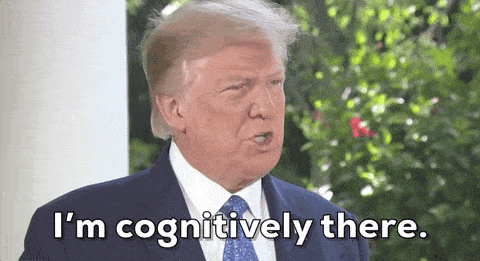
If your brain was a Maccas kitchen, your working memory refers to the number of food orders being made, and cognitive overload is the limit of orders you can make at any given time.
Willpower
Willpower refers to the ability to resist short-term temptations in order to meet long-term goals. For example, resisting going on your phone to instead study for exams.
The thing about willpower is that it is a finite resource, meaning there is only so much of it. Willpower is often depleted throughout the day, chipped away at by stressors and decisions.
We often promise ourselves at the beginning of the day to be productive at home. However, once we’re done with school, work, and everything else going on, we just can’t be bothered. The reason is usually that we just don’t have the same willpower as we did at the start of the day.
Willpower is linked to our conscious brain. It grapples with decisions constantly. These choices take effort and chip away at our willpower. However, if we’re in a habit, our behaviours bypass this decision-phase. We just do it without giving it a second thought.
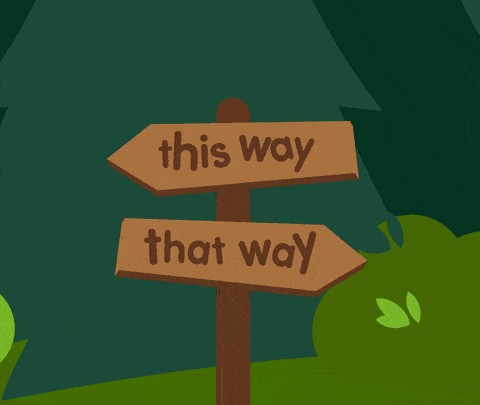
Everyone likes the idea of ‘doing better, being better,’ but the reality of the situation isn’t that simple. We often beat ourselves up when we think about what we should do, only to end up on a 3-hour Reddit deep dive about hedge funds.
We like to think that everything is a matter of conscious effort. That we can make any change if we just try hard enough. To an extent, this is true. However, the key to long-term change is by tackling the habits that underpin your life.
Why? You’re bypassing willpower and the possibility of cognitive overload, meaning that the changes being made are sustainable.
How to Create a Habit
Solid habits throughout the year make times of stress and pressure manageable. Let’s take exams as a classic example.
Term 4 stress is often made up of pressures created by the expectation to study. We obsess over the intention to study more than the action itself. In psychology, this is referred to as an intention-behaviour gap, where we know what we need to do, but don’t.
If we’re not in the habit of studying, we fixate on the task of study. If we are in the habit of study, these concerns aren’t taking up real estate in our working memory.
Key factors that make up a lasting, durable habit are:
- Cues
- Environment
- Consistency and complexity
- Rewards.
Let’s get into each of them.
Cues
Cues are a stimulus in a certain environment that trigger specific behaviours. For example, when your phone lights up with a notification, you check it.
Cues are the things that trigger a lot of our subconscious behaviours and differ from person to person.
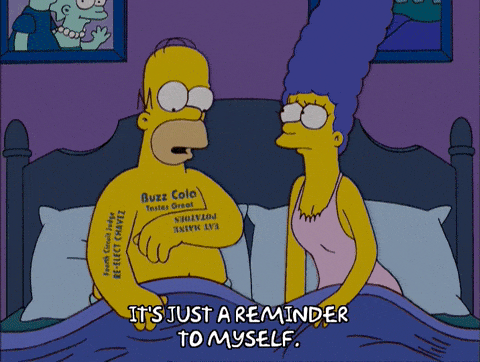
Because habits are done without much thought, introducing cues helps encourage your brain to accept the new action. It’s about transitioning it to your conscious thoughts into subconscious behaviours.
Even better, you can use existing habits to ‘stack’ new ones. It’s like a reminder nudge that you’re even trying to develop a new habit.
If there is nothing to remind you to do something, it probably won’t happen.
So, a good cue is one that is accessible and obvious to you. Cool? Cool.
Environmental Selection
Another term straight out of a psych textbook, environmental selection refers to the way your space is set up.
You can change your environment to encourage certain behaviours. For example, putting your gym clothes out at the start of the day so it’s easier to get changed and go.
Alternatively, your environment can be set up to inhibit the behaviours you want. A classic example here is having your phone with you while you try to study. Ultimately, it’s going to stop you from focussing, no matter how much you think it won’t.
When trying to create or maintain a habit, it’s important to think about how your environment is either helping or hindering you.
Tied in with this is the idea of environmental stability. Essentially, if your space is consistently set up to facilitate your habits.
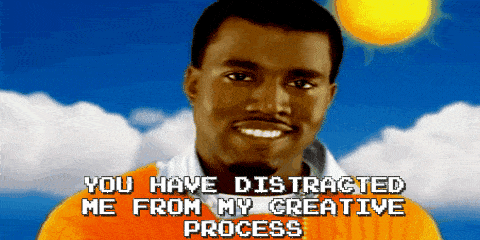
Think about how you can make it easier for your conscious mind to get the job done. You want to avoid the internal argument about whether or not you’re actually going to do what you’ve set out to.
Setting up an environment in agreement with your goals is about both introducing cues, and removing factors that may inhibit you.
Consistency and Complexity
It should come as no surprise that consistent practice is the key to changing conscious action into subconscious behaviour. No one can do something once and be good at it.
A habit is a behaviour that has become automatic. Common rhetoric says that it takes 30 days to create a habit. However, there’s a bit more to it than that.
In a study conducted in 2010, it was found that the time taken to reach automaticity ranged between 18-254 days. The average time being 66 days.

The variance of time to create a habit is thought to be influenced by two things: The complexity of the behaviour, and the suitability of the environment. In other words, how difficult is the action, and how well is the environment set up to encourage the behaviour (i.e. environmental selection, the thing we were talking about just before).
It makes sense, right? The time to make regular study a habit would take much longer than doing something like eating a piece of fruit with breakfast every day. Studying is usually seen as more difficult than eating an apple a day (we assume).
Reward
We humans love rewards and it plays a big part in our motivation. Although, our minds often jump to conclusions around what constitutes a reward.
We talk about motivation a lot around here, and we’re not about to stop. Quick rewards are often driven by extrinsic motivation. This is the kind that can bring around short term change, but either isn’t practical in the long run, or loses its worth.
Say you want to read for half an hour before bed, rewarding yourself with the classic food-option is a bit counterintuitive to sleep. It may not even hold any appeal to you at that time. Something like money also doesn’t seem super fitting for a nightly routine.
Instead, what may motivate you more is the knowledge that you’re ensuring a better nights’ sleep and you feel better the next day. In other words, intrinsic motivation, the one that makes you feel good inside because you’re doing it for yourself.
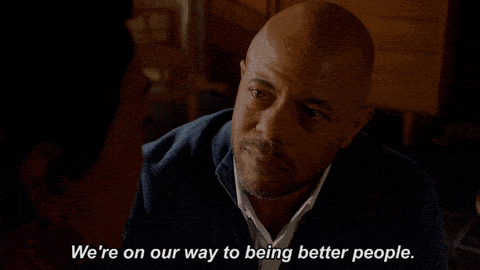
Finding intrinsic motivation is easier said than done, and it’s difficult to know what really motivates us internally. Usually, it’s a case-by-case basis, so we encourage you to think about the intention of your habit-goal (i.e. why you’re bothering in the first place).
If the habit is something like studying, it may be that you want to get into a certain tertiary course. Study motivation may also come from the feeling of reward when you understand something new. Everyone has different drives, so do some soul-searching.
We give extrinsic motivation a bad wrap around here, but it’s not all bad. Uncertain extrinsic motivation can play a part. That term is pretty vague, so let’s break it down.
Uncertain rewards are things like praise and recognition. You know that nice feeling you get when someone compliments you without any kind of prompt at all? Yeah, that one.
When people recognise your efforts and encourage you, it spurs you to continue. It’s not a guaranteed source of motivation (hence the name ‘uncertain’), but it’s nice when it happens.
Ultimately, intrinsic motivation is your best bet, but there’s no harm in using a combination of things to keep you going.
Let’s Put All of This Together
So, the recipe for a new habit is something like this:
- Have obvious reminders to cue the habit.
- You can use existing habits to remind you of the new one you want to have.
- Have an environment that makes it easy to carry out the action.
- Make sure this environment is consistently like this (including time).
- Give more time to develop habits that are more complex.
- Reward yourself, ideally with something intrinsic.
Taking study as a practical example:
- The cue is to take your schoolbooks out of your bag, before you put your bag away. If that isn’t enough, you could leave a note for yourself in a place you’d normally go to.
- To stack this, take the books out before you dump your bag in your room.
- Set up a study space at home that’s clear before you plan to study.
- If possible, keep this set up all the time (i.e. keep it consistent).
- Plan to study at the same time where you can.
- Give yourself a month or so to let the habit develop (i.e. plan to keep it as consistent as possible over the habit-development period).
- If you’re having trouble, set up a weekly planner to ensure you have the time to fit study into your schedule.
- Track your progress by returning to old material and revising it, while making note of the concepts you now understand.
- Set up a habit tracker using an app. There are heaps of free options out there, so go for a browse to find something that works for you.
Breaking Habits
We’ve talked all about how to make a habit, but there is an equal time where we want to break habits.
Once we’re set in our ways, it can be very difficult to undo them. Consciously stopping yourself from doing something takes a lot of effort, especially when we don’t even realise we’re doing it.
We mentioned earlier that when people are under stress, they tend to go to pre existing habits. The ones that are well ingrained in us. It makes sense that if we’re trying to introduce a new habit, it’s probably because we don’t like the current one.
Unlearning a habit is kinda like doing the opposite of creating one: Find ways to disrupt the cues of the current action, and change the environment to inhibit the habit.
Let’s take another example, for old times’ sake.
If you’re trying to stop looking at your phone so much throughout the day when you’re bored, it’s best to get your phone out of sight. We’re not going to tell you to lock it up indefinitely, but popping it away for an hour before bed may be a good start.
You may want to focus on small things at first, and not try to go cold-turkey. Especially when it’s a habit that is really ingrained in you. It may be that you’re trying to reduce a habit, rather than remove it altogether.
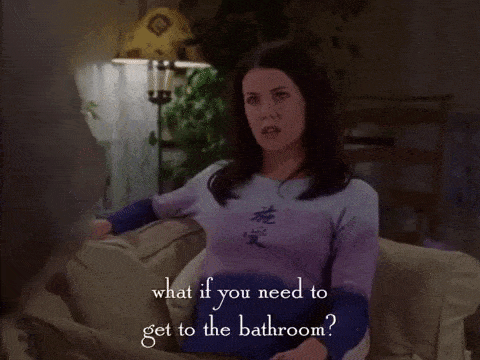
Getting your phone physically away from you is the inhibition of the habitual cue. Which is just a fancy way of saying ‘out of sight, out of mind.’
Changing your environment is also a factor in breaking habits. If you’re used to messaging your mates until the crack of dawn, it’s going to be difficult to resist temptation. There’s nothing wrong with ditching your phone for a bit, but it’s hard when you have the gnawing feeling of unchecked notifications.
It could be that letting your friends know beforehand helps. This way, they at least know not to hear from you.
Create an environment that removes the (bad) cues from your mind, and find ways to disrupt any cues that you can’t remove altogether.
The Main Point
Overall, we’ll likely continue past behaviours unless there is an environment to disrupt bad habits. To introduce new habits, we have to make the action easy to repeat. In the context of learning, we want to link studying and the appropriate study strategies to consistent cues, and make studying rewarding.Habit research suggests that the main benefit of habits is their cognitive efficiency. In other words, freeing up cognitive resources in your brain. Good habits will make stressful times feel less burdensome. Getting into habits early will teach your brain what to do when faced with busy periods like internal hand-ins and external exams.
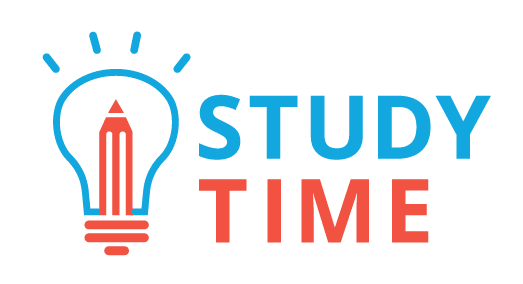
0 Comments